Spread the love
Feeling tired after a full 8-9 hours of sleep is surprisingly common and can stem from various factors, not all of which relate to how long you sleep. Here’s a detailed discussion of Why You’re Tired After 8-9 Hours of Sleep, common causes, and their solutions.
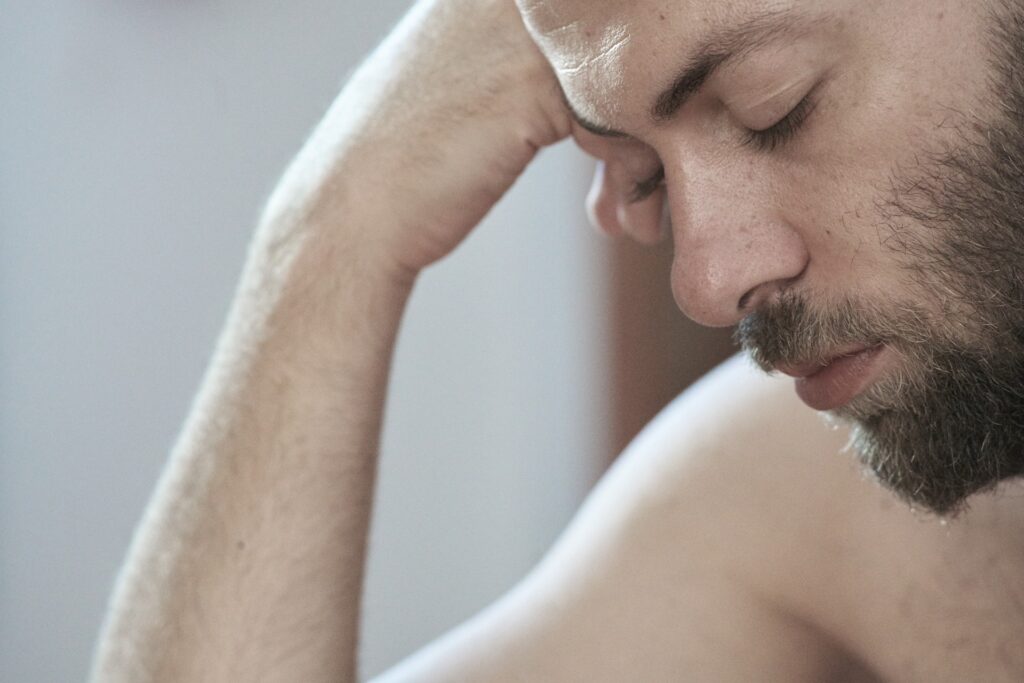
01. Best Sleep Quality and Sleep Cycles
- Cause: Not all sleep is equal. Quality sleep includes uninterrupted cycles through each sleep stage: light, deep, and REM (Rapid Eye Movement) sleep.
- Interrupted or light sleep can leave you tired despite the hours in bed.
- Solution: Try to maintain a consistent sleep schedule, even on weekends, to help your body’s circadian rhythm align.
- Avoiding screens at least an hour before bed can improve sleep quality by reducing blue light exposure that interferes with melatonin production.
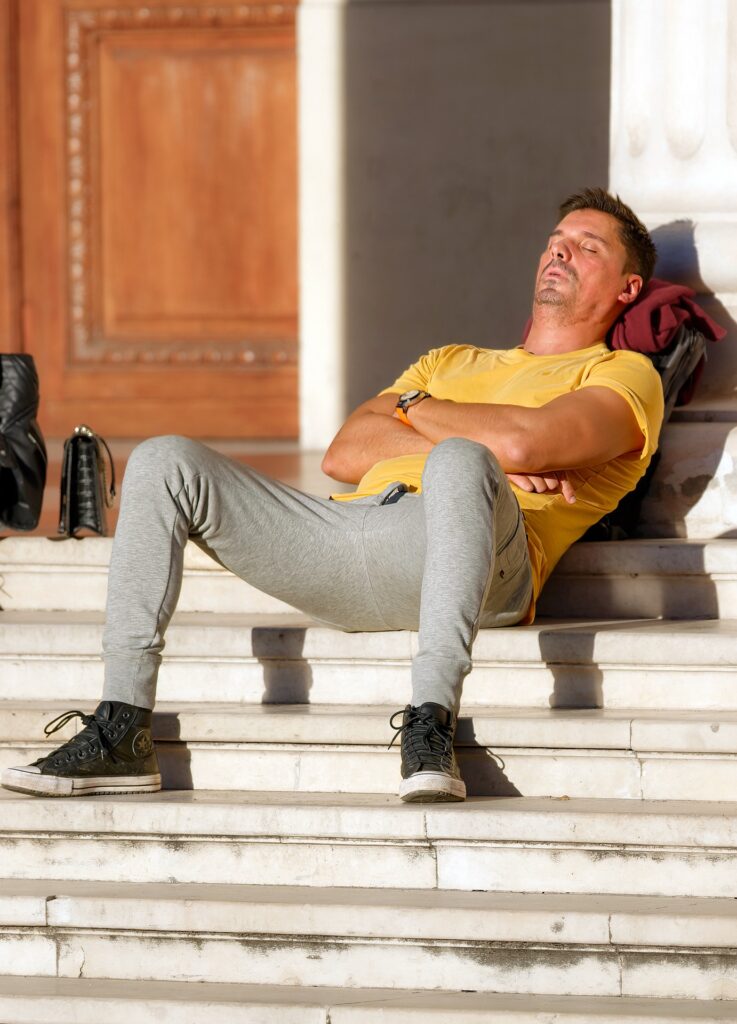
02. Sleep Apnea or Other Sleep Disorders
- Cause: Conditions like sleep apnea cause frequent interruptions in sleep due to breathing difficulties, which can lead to poor-quality sleep and excessive daytime sleepiness. You might not even be aware of these disruptions if they’re brief.
- Solution: If you suspect you have sleep apnea (e.g., you snore or wake up gasping for air), consult a healthcare professional for a sleep study. Treatment options might include using a CPAP (Continuous Positive Airway Pressure) machine or other interventions.
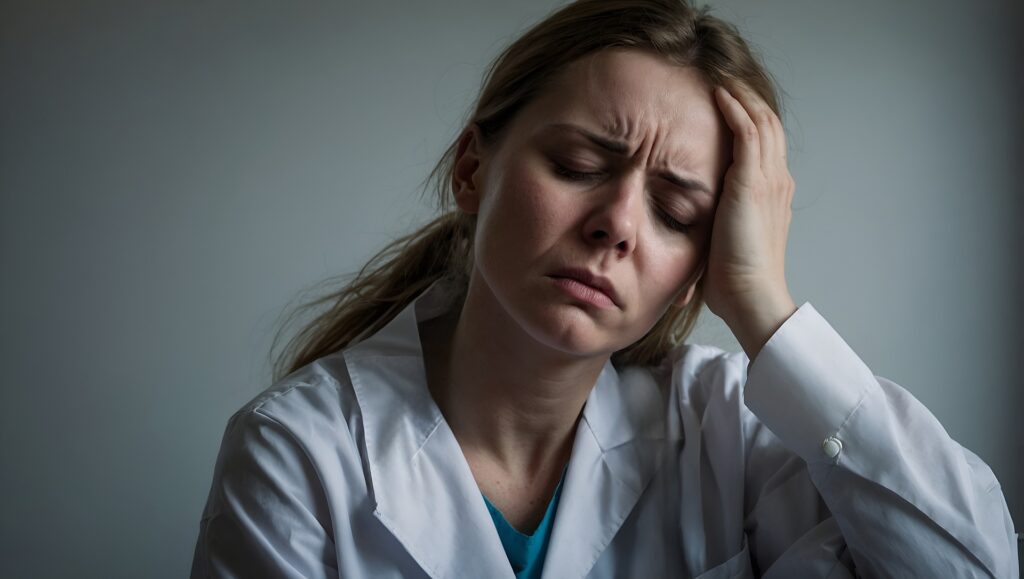
03. If You Feel Stress and Anxiety
- Cause: Chronic stress and anxiety can reduce sleep quality by making it difficult to fall into restorative sleep stages, causing fragmented sleep.
- Solution: Consider practicing relaxation techniques such as deep breathing, meditation, or progressive muscle relaxation before bed. Journaling before sleep can also help process worries and promote a clearer mind.
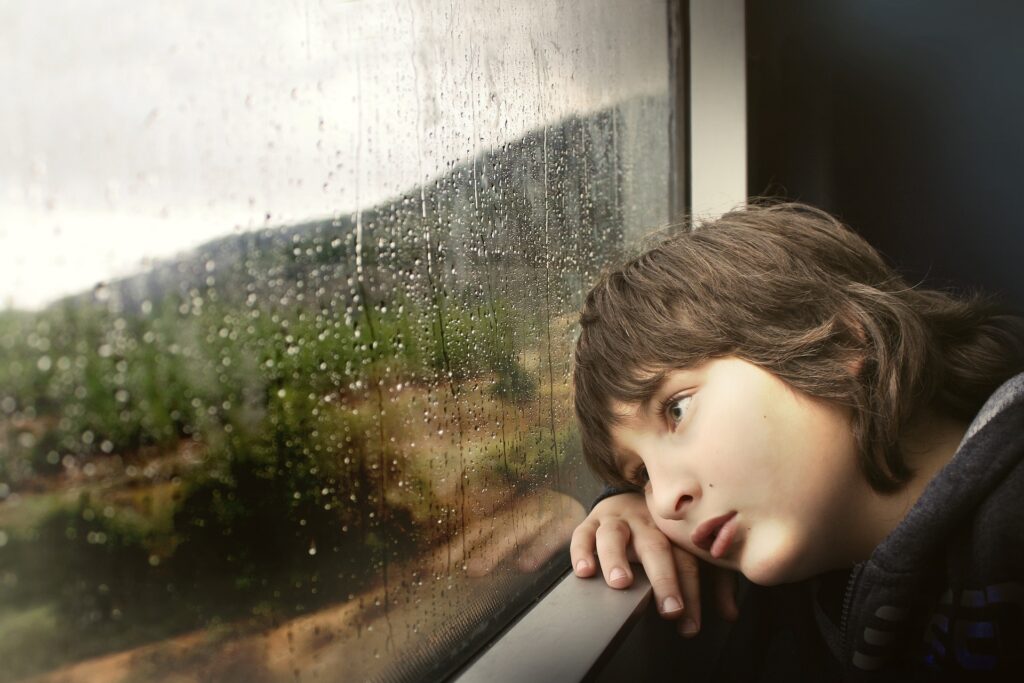
04. Poor Sleep Environment In The Room
- Cause: A bedroom that’s too warm, noisy, or bright can keep you from achieving deep sleep.
- Solution: Optimize your sleep environment by keeping your room dark, quiet, and cool (ideally 60-67°F or 15-20°C). You may also find that a white noise machine or earplugs can be helpful if you’re sensitive to noise.
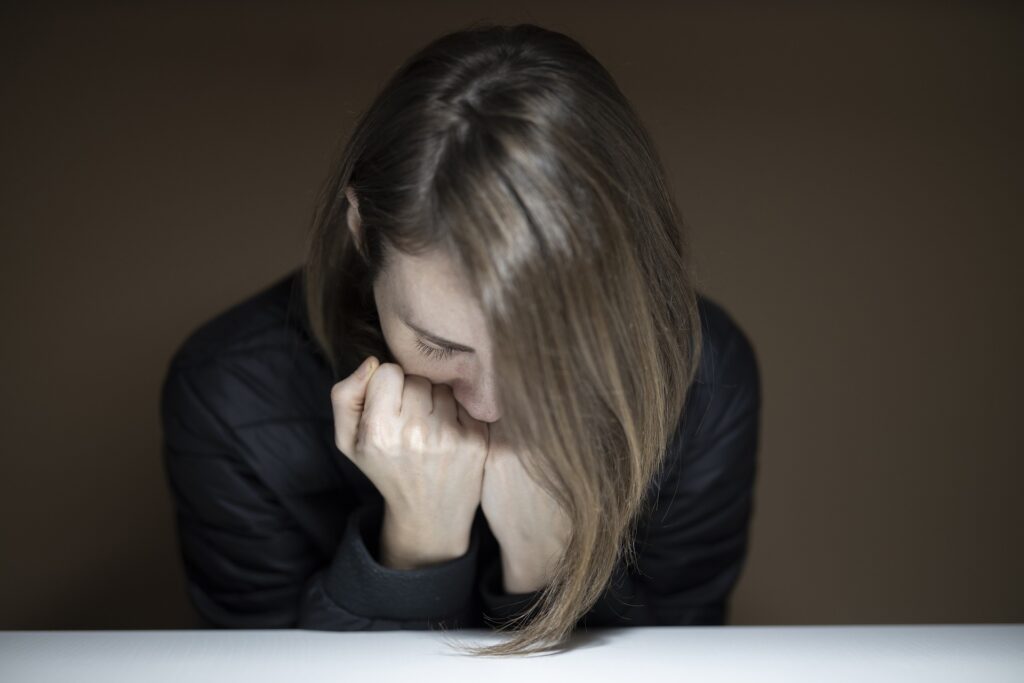
05. Somehow Diet and Lifestyle Factors
- Cause: Eating too late, drinking caffeine, or consuming alcohol close to bedtime can disturb sleep. Heavy or spicy meals may also lead to discomfort and impact your ability to rest.
- Solution: Limit caffeine intake to the morning and avoid heavy meals within two hours of bedtime. While alcohol might make you sleepy initially, it disrupts your natural sleep cycle later in the night.
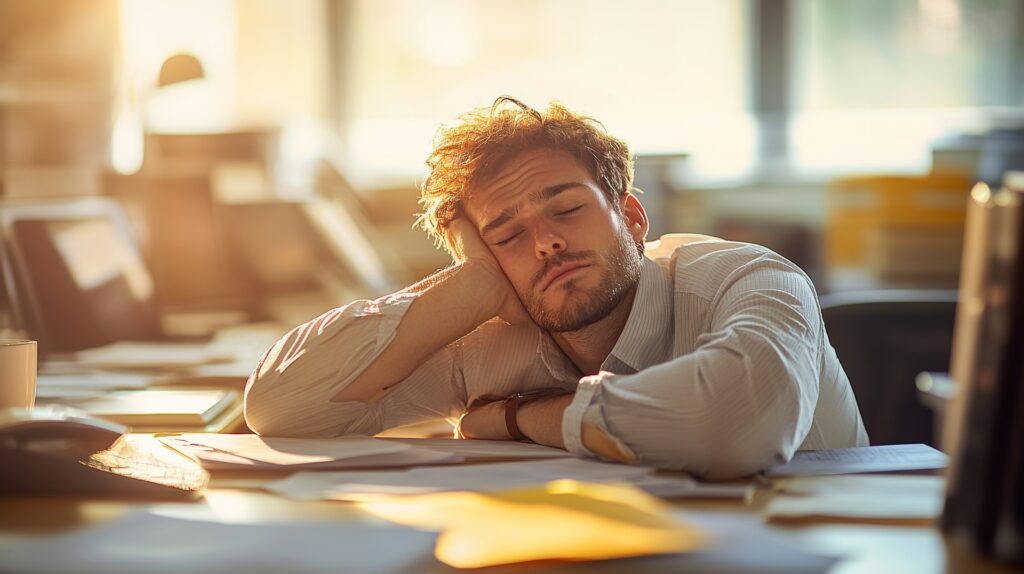
06. Sometimes It Happens That Lack Of Physical Activity
- Cause: A sedentary lifestyle can make it harder to achieve restful sleep, as regular physical activity contributes to better sleep quality.
- Solution: Try incorporating moderate exercise (like walking or yoga) into your daily routine, but avoid vigorous exercise close to bedtime, as it can be stimulating.
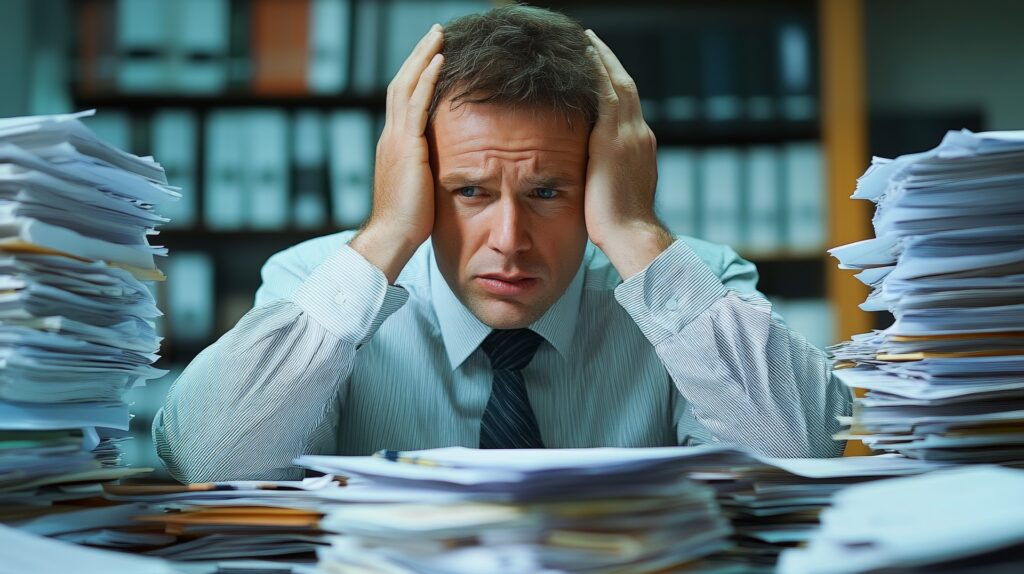
07. Underlying Health Conditions
- Cause: Conditions like depression, thyroid disorders, anemia, or chronic fatigue syndrome can make it hard to feel rested even after a full night’s sleep.
- Solution: If you suspect an underlying health issue, consult a healthcare provider for proper evaluation and treatment. Blood tests and a comprehensive health assessment might be necessary to identify specific concerns.
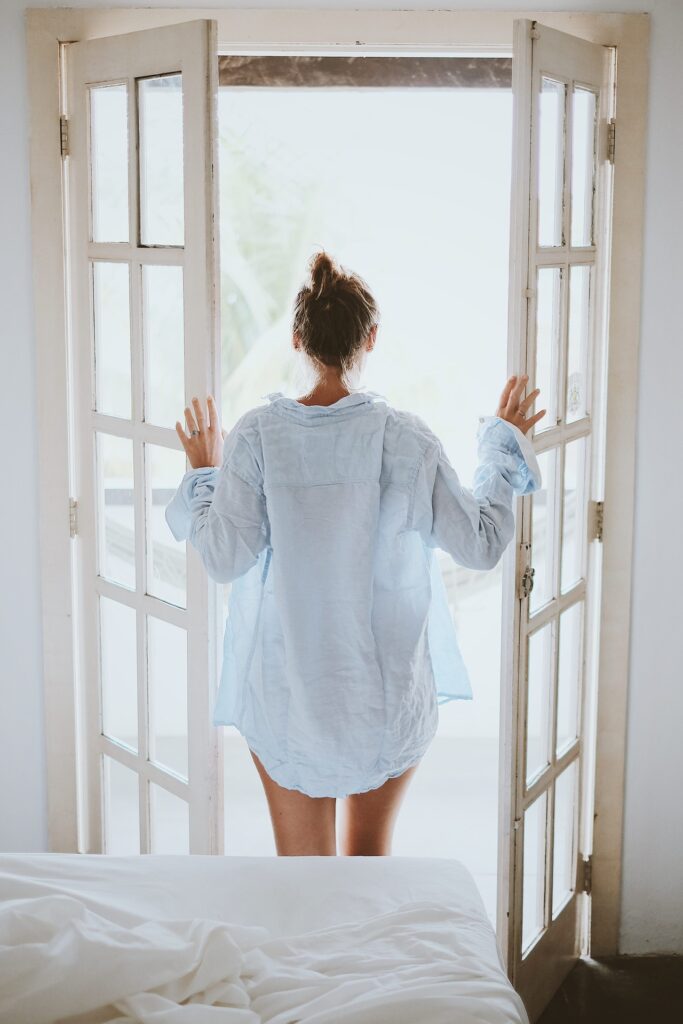
08. Natural Variations in Sleep Need
- Cause: Some people may naturally need more or less sleep than others. If you feel best with nine hours rather than eight, this could be what your body needs.
- Solution: Experiment with sleep duration to see what makes you feel most refreshed, and don’t feel obligated to stick to eight hours if your body signals it needs more.
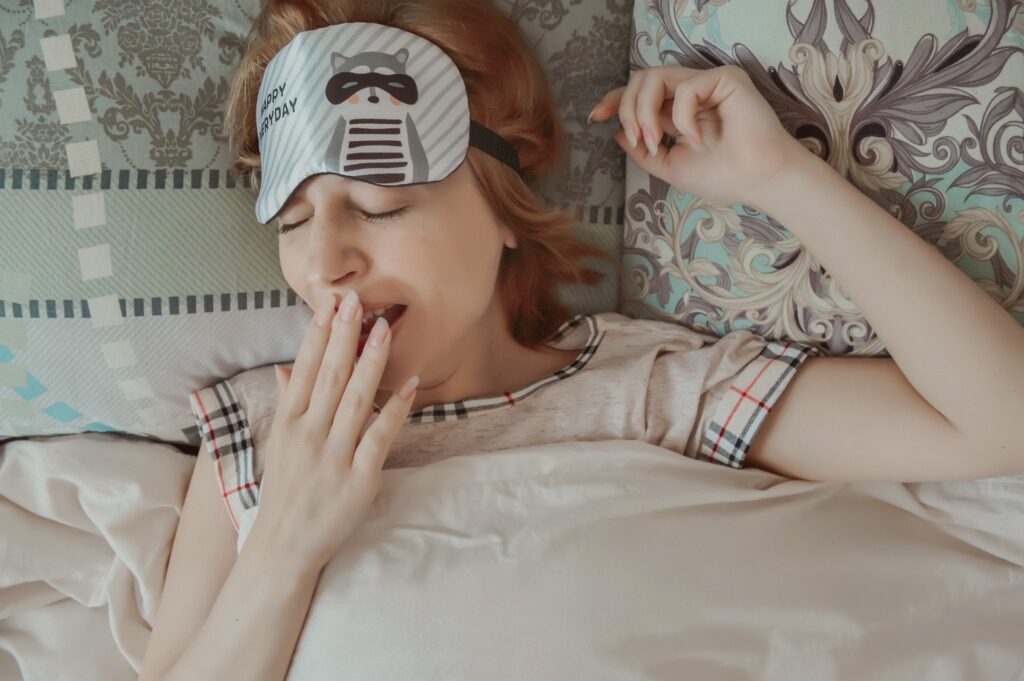
Summary
To improve your overall restfulness, focus on sleep quality over quantity, maintain a sleep-friendly environment, reduce stress before bed, and ensure a healthy lifestyle.
If fatigue persists, consult a healthcare provider to rule out sleep disorders or other medical issues. With a few adjustments, you’ll likely see improvements in your energy levels and daily performance.

Do Rabbits Sleep With Their Eyes Open

How To Stop Sleeping With Your Mouth Open


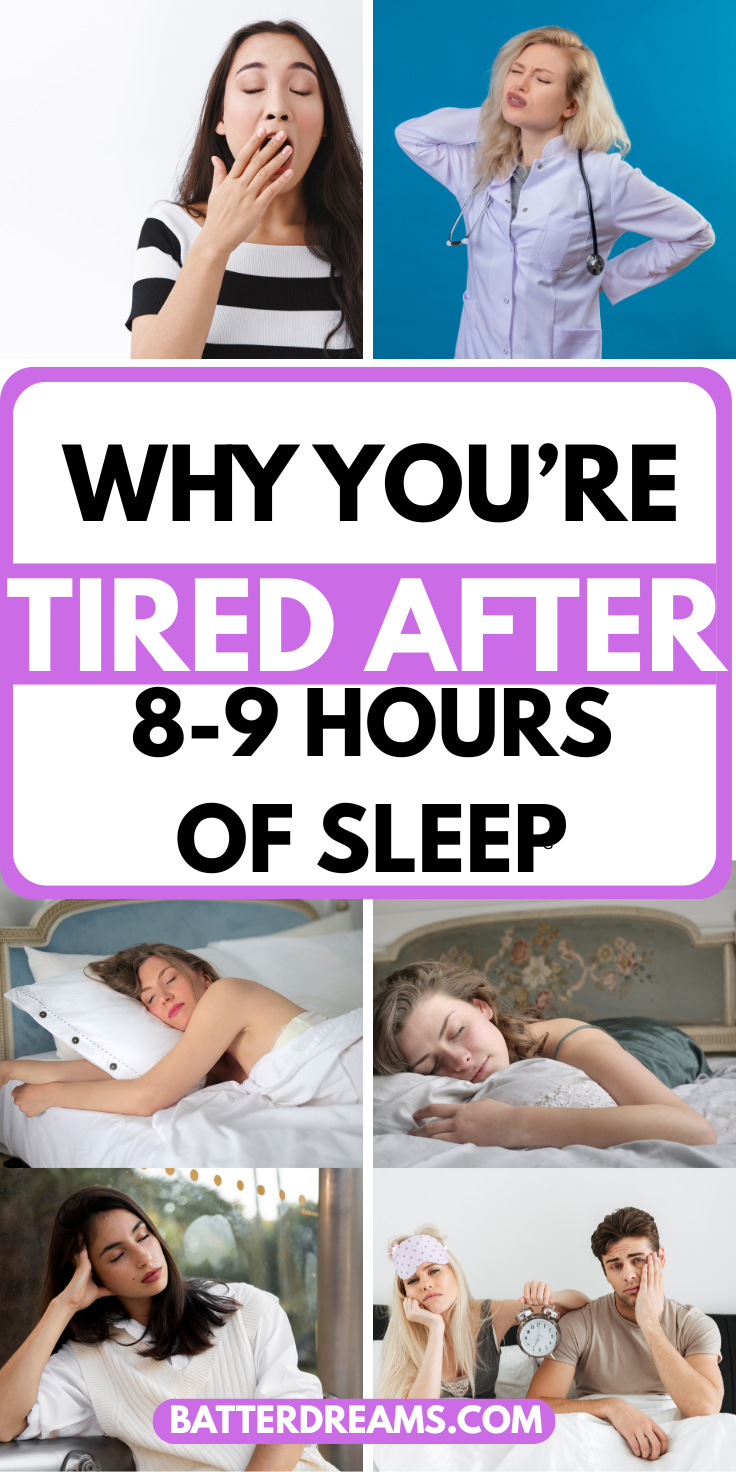
3 thoughts on “Why You’re Tired After 8-9 Hours Of Sleep”